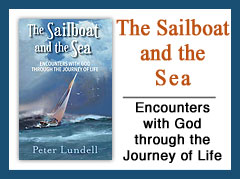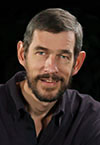Tragedy
August 12, 1963, was a typically hot, muggy day. Bobby and I were practicing a new tap dance routine for a TV amateur competition show. Mrs. Mauer said we were “pure harmony.” I practiced in front of my mirrored closet until I wore myself out. Mom bragged about my natural talent. And Bobby bragged about his to anyone who would listen. “Look at me! I’m a great dancer too.” He was ten.
Later Mom and I were eating lunch. All was quiet. She never spoke while she ate, said it was rude. Bobby and his friend Timmy, who lived two houses away, were building a soapbox go-kart near the creek.
Nightmarish screams slashed the silence.
A hollow hush followed.
Mom bolted out of the front door. I ran as fast as I could to keep up with her.
Timmy’s father stored gasoline in a shed. And the boys apparently thought it was a good idea to use some gas to burn holes in the wood for the axles. Gas must have splashed onto Bobby’s cloths. How else could flames have devoured him when he lit the match?
“My God!” my mother shrieked when she saw him. “Help!”
Timmy had thrown creek water on Bobby in an effort to douse the flames, only to intensify them.
Mom ripped off her housecoat and ferociously tried to smother the flames. She threw herself on top of him, desperate to save her young son’s life, screaming, “For God sakes, someone help me!”
Unable to speak, I stood there, so shocked I couldn’t even cry. The smell of burning flesh filled my nostrils, choking me and turning my stomach. I collapsed onto the ground.
When the flames were out, Bobby didn’t move. The ambulance and fire engine arrived. My mother’s eyes were like steel when the medics wrapped Bobby in blankets and placed him on the stretcher. Sirens blared as the ambulance sped away.
After months of hospitalization and continuous physical therapy, Bobby improved, but his grotesquely scarred body turned my once-prankish, fun-loving brother into a melancholic.
The taut, scarred skin on his legs caused him terrible pain. The realization that he’d never dance again deepened his despair.
Though I was heartbroken for my brother, what my mother did crushed me. She concluded that, since Bobby was unable to dance, I couldn’t either. She ended my lessons.
“Mommy, please, no!” My thumping heart felt as if it would blow up. Why punish me? I blubbered and pleaded with her not to take my dream away. My histrionics did nothing to change her mind. Mom remained adamant. I felt I no longer mattered. Angry with my mother, I wished her dead. I hated Bobby for playing with matches.
It never crossed my mind that my brother suffered a gruesome life-devastating experience. Was I that insensitive to his tragedy? I remember almost nothing of the aftermath—only that while he spent months in the hospital, I had to babysit my younger siblings when my parents visited him. My last memory is of all the bandages that covered his frail body the day he came home.
Naturally, Mom had to think of Bobby first. It would’ve only worsened his anguish to see me continue lessons without him. But without dance in my life, I felt as if I no longer existed. Something died in me that day, and the loss altered my life forever. If only my mother could have foreseen the tragic impact that her decision would have on my life—how it would become the first falling domino in a long, descending row.
__________
Dominoes. From parents to leaders to members of the community, all the ways that people failed me—and fail young people anywhere—each of these failures of love, concern, or responsibility followed the one before and knocked me deeper into despair and trouble.
Dominoes. All the things people said or did that allowed the next downward phase of my life to happen—and allow countless young people to descend into an abyss—these might have been stopped, but they weren’t.
Dominoes set on end in a row. As one fell, it caused the next one to fall, and the next . . . If someone had only stopped them, but no one did. If I had only stopped them, but I didn’t believe I could. How many others have had a row of dominoes much like mine?







